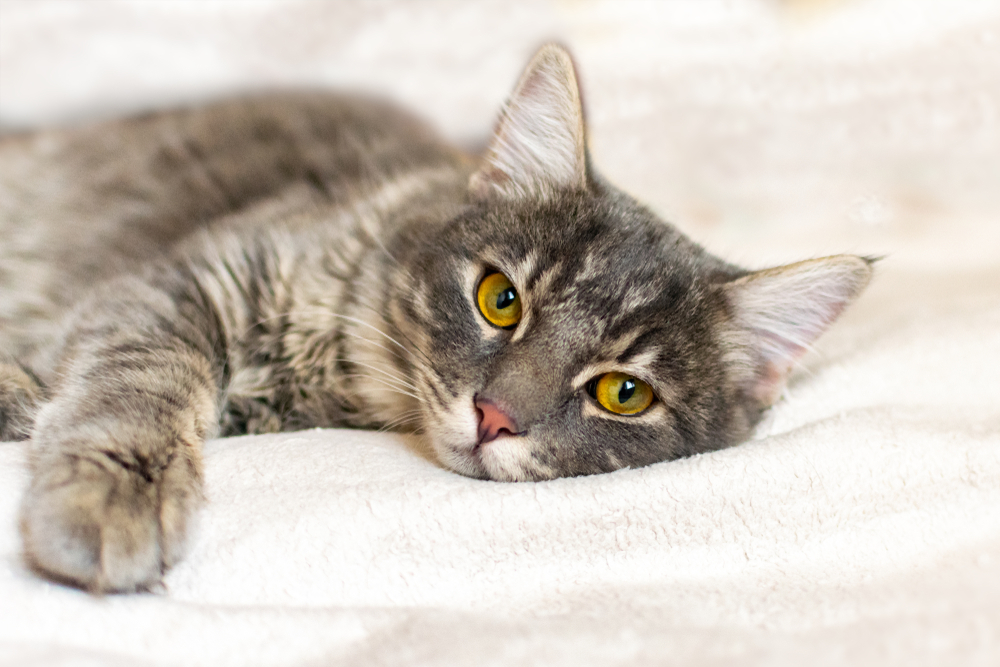How To Reduce Stress Before Your Visit
Minimizing stress at the veterinary hospital begins at home. If your cat is not used to the carrier, leaving it in a visible location signals to them only one thing—stress. There are many ways to reduce this. One way is to leave the carrier in a fixed-open position all the time in your cat’s environment, so they are used to seeing it, and can explore on their own.
Another option is to use Feliway products to help soothe your pet with appeasing pheromones. They have many types of products which you can purchase online (e.g. on Amazon). It helps to keep your pet indoors the night before the appointment if they’re outdoor cats, and if indoors, it helps to sequester them into a small space where they can’t hide under furniture or other objects. It can be helpful to stand the carrier with the door facing towards the ceiling and lower your cat in, feet first. Then, gently turn the carrier so it rests on the ground before picking it up to place it in the car.
Once inside the car, make sure it’s a comfortable temperature and the radio is quiet. Place your cat’s carrier on the backseat floor, behind a seat. If there are other people riding in the vehicle with you, ask them to speak softly and say soothing things to your cat to help them feel comfortable during the ride. Try not to make sudden turns or stops as this can promote carsickness and worsen stress for your cat before arrival.
Once you’ve arrived at the clinic, and if you’re early, let us know you’ve arrived with a phone call. We will let you know if your exam room or assistant is ready, and that you can enter the cat lobby of our clinic. If there is a delay, your cat would probably prefer to stay in the car with a controlled temperature and adjust for a moment before entering the clinic.





